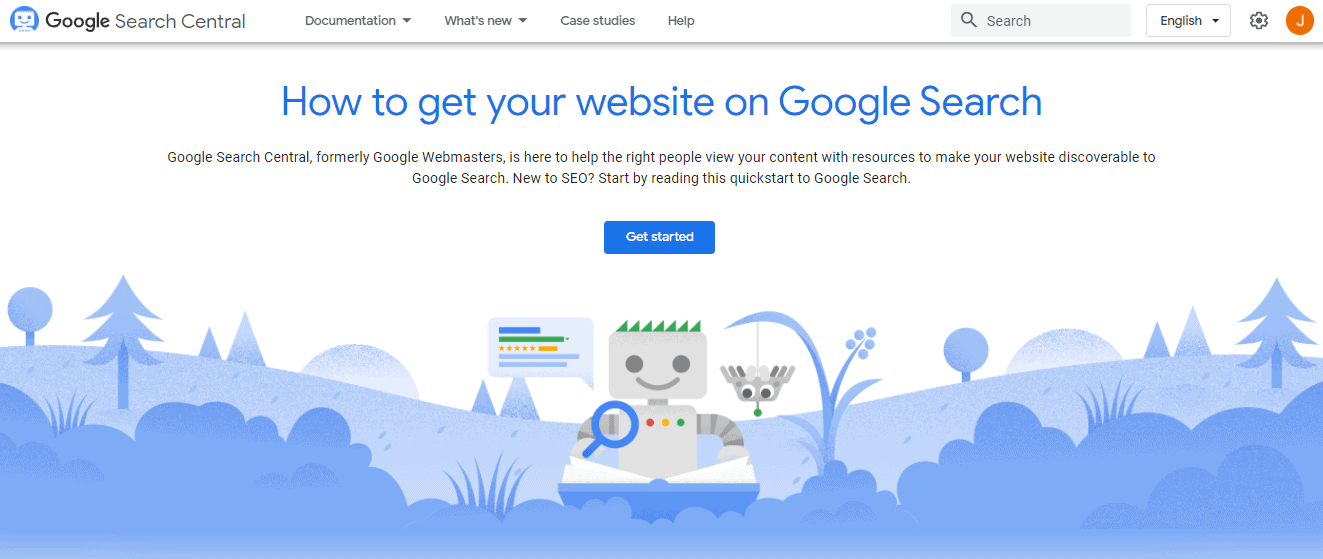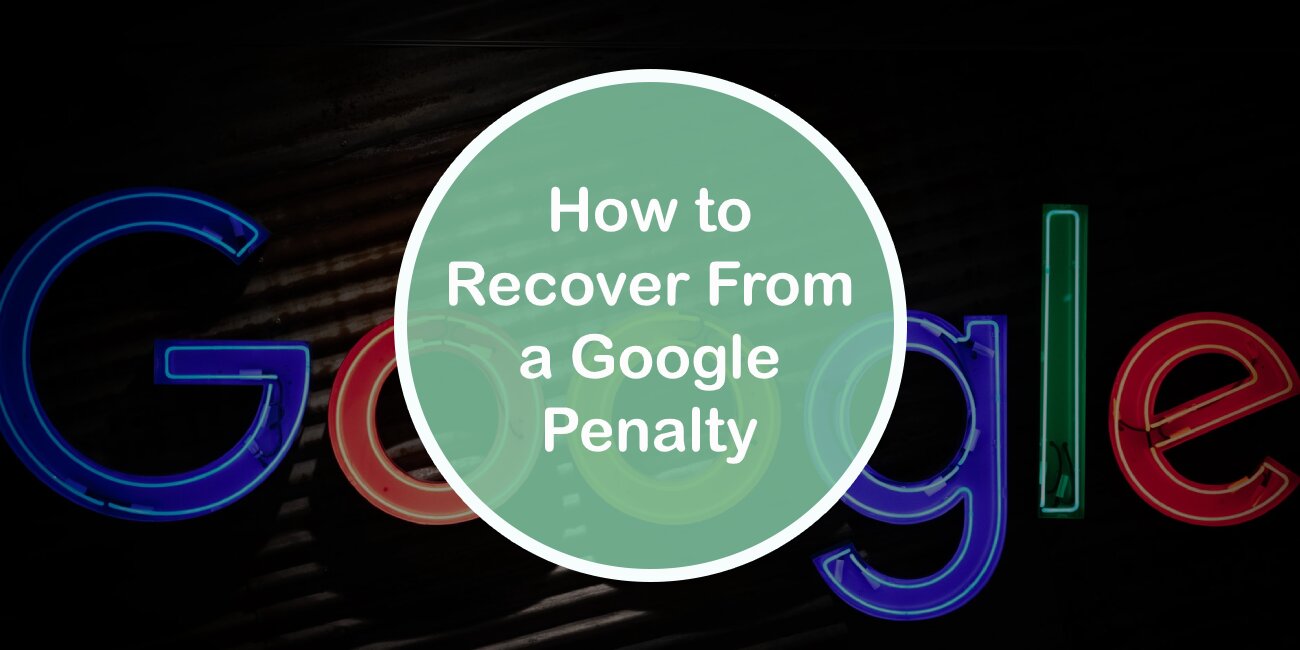If you’ve noticed a sudden drop in traffic on your website, then chances are Google has penalized you. It is one of the most horrifying webmaster’s nightmares. However, all is not lost, for there are several ways to recover from a Google penalty.
Received a #penalty from #Google? This article will guide you through the process of recovering from it! Share on XSince 2019 and in 2020, and likely in 2021, Google will continue to hand out more content based penalties. These are usually based around thin content or insufficient information matching a searcher’s intent. There are many ways of dealing with this, one of them is using a WP plugin to expand your pages with useful FAQs that cover more longtail keywords. Check this one out: https://www.onlinemarketinggurus.com.au/faq-schema-plugin.
Of course, it’s crucial to avoid Google penalty, but if it happens, you need to know how to counter it. Two types of situations can decrease traffic on your website: manual actions from the Google spam team and algorithmic updates. To fix the issue, it is necessary to know what sort of things Google frowns upon – usually, Google guidelines violations and excessive link-building – and what caused the penalty.
Manual penalty
Manual penalties are pretty straightforward and, therefore, easy to deal with. All you need to do is go to Google Search Console (i.e., Webmaster Tools) and check for any messages. These notifications will clearly state what the problem is, so you can quickly and efficiently address it.

Algorithmic penalty
The algorithmic penalty is wrongly perceived as a penalty; it is actually an update to the algorithm. Therefore, the diagnosis is a bit more challenging, but there is a correlation between the moment when the traffic dropped and the date of a new update. You should check Google Algorithm Change History to help you identify the problem.
Two algorithm updates are the most popular: Panda and Penguin. While Panda mostly focuses on content quality, Penguin analyzes backlinks, and anchor text distribution. Although these updates are not a penalty themselves, being on the wrong side of an algorithm sure feels like a punishment.
Causes of penalties

Backlinks are the culprit for penalties in as many as 95% of cases. Low-quality backlinks are a threat to your website, and the price you will pay is a decrease in traffic, a drop in SERP ranking, and ultimately lowered income.
Below is the list of the most common backlink issues:
- from websites that violate Google guidelines
- from websites with duplicate content – such websites usually have low-quality content
- unrelated content and irrelevant keywords – relevancy is a significant ranking factor for Google
- links to spammy comments or forum profiles – usually, there are places only for the sake of inserting a link
- thin content – content with no added value
- links from sidebars, footers, and widgets
- sponsored content – Google frowns upon advertorials. If you want to promote something on your blog, use no-follow attributes for the links
- hidden text
- links to adult or gambling websites
- hacking
- cloaking
- automatically generated content
- link schemes
Ways to recover from a Google penalty
Once you have found out whether you have received a manual penalty from the Google spam team or algorithm updates are at the root of the problem, it’s time to address the issues.
Identify bad backlinks
As we have already mentioned, bad backlinks cause a traffic drop in the vast majority of cases, and the first thing to do is to identify problematic links. You can do so by going to Google Webmaster Tools and downloading all the backlinks.

First, click on the “Search Traffic” option and then select “Links to your Site”. Next, in the module “Who Links the Most”, click on “Download Latest Links”.
After you have downloaded all the backlinks, you can use your favorite SEO tool to identify low-quality links. However, it’s advisable to steer clear of tools that automatically identify and remove bad links because they can make a mistake and possibly delete the backlink that is beneficial to your website.
If you are struggling with this process or you are not entirely sure what you are doing, perhaps it would be a good idea to contact professionals. SEO experts from Atlanta SEO Agency are at your disposal and will be happy to assist you. Here, it’s crucial to invest more time and effort and do the job well.
Remove bad backlinks
The way to remove low-quality backlinks is to send a polite and professional email request to the website that needs to help you with this. Sometimes, you may run into some trouble finding the contact information of the person you need help from. If an email address is not provided on the website, you can search in the WHOIS database.

It’s also important to use your company email address because it will be proof that you are the owner of the website sending the request.
Moreover, you should be as specific as possible in your email. Remember that you are asking somebody to set aside a portion of their time to do you a favor. Therefore, help them save some time and give them clear instructions to find the problematic link.
Finally, keep track of all the requests sent. You need to know who has opened your emails because that way you will know who is reading them and who is ignoring them.
Disavow bad backlinks
When you have sent emails requesting the removal of low-quality links, one of three things can happen:
- The link will be deleted.
- Your email will be ignored.
- You will be asked for financial compensation for removing the link.
In the case of the other two, don’t pay for anything; just disavow the entire domain. You can do that by submitting a disavow report to Disavow Links Tool.
Summing up
No website owner wants to be penalized by Google. If this happens, years of hard work will quickly go down the drain. To avoid penalties, you need to invest a lot of time studying Google guidelines and creating an SEO optimized website and pay close attention to what gets posted on your page.
Make sure there is no low-quality content. Nevertheless, if you do find yourself in this situation, all is not lost. There are steps to take to recover from a Google penalty. Primarily, get rid of bad links and duplicate content. Additionally, be careful with anchor text distribution. Finally, invest more time in the recovery process because it will improve your ranking and, ultimately, your website’s reputation.

